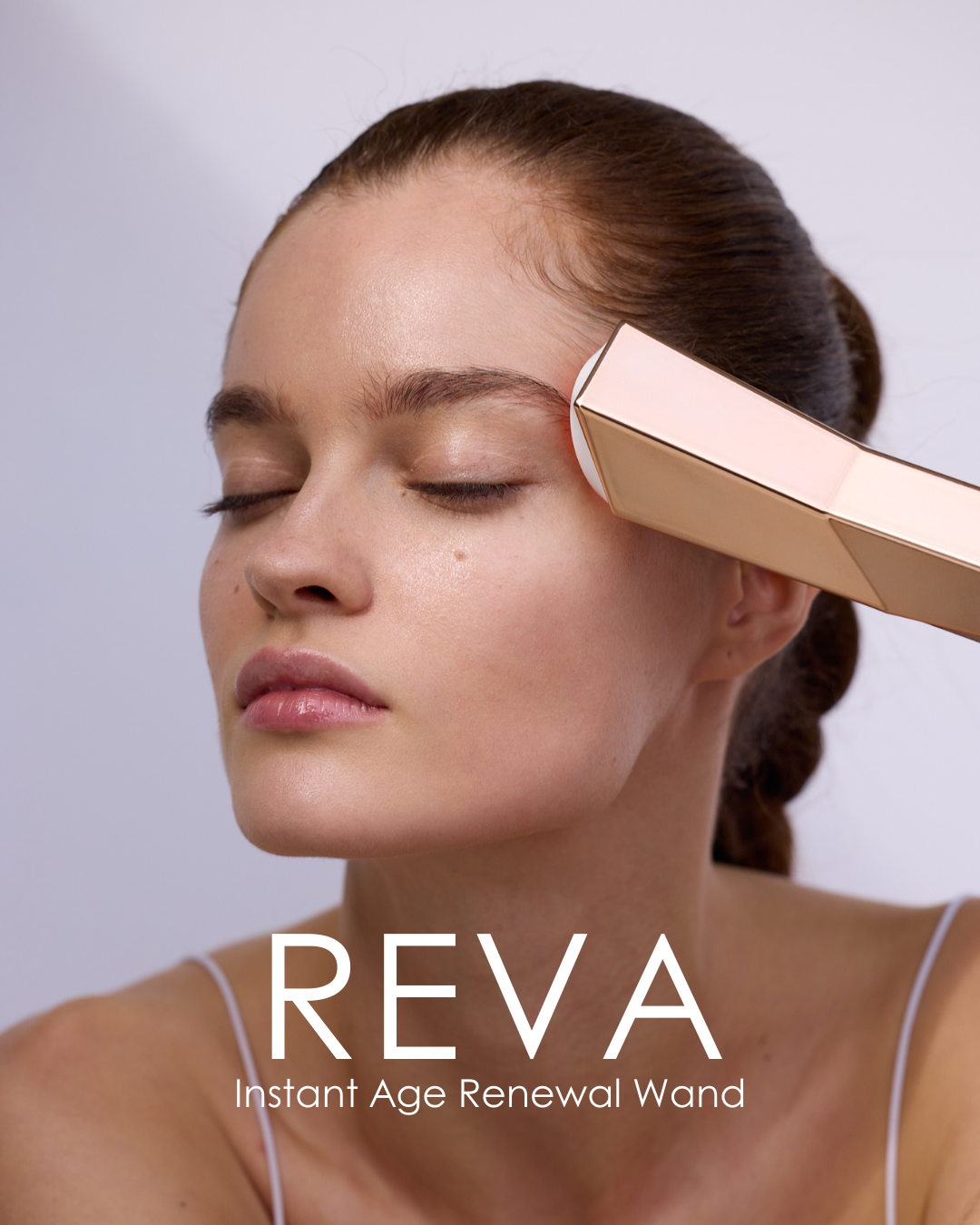
What is Electro Muscle Stimulation, And How Does it Differ From a Microcurrent Facial?
IN THIS ARTICLE:
- 01 What is EMS?
- 02 What are the Benefits of EMS?
- 03 What is Microcurrent?
- 04 What are the Benefits of Microcurrent?
- 05 What is the Difference Between Microcurrent Electrical Stimulation and Electro Muscle Stimulation (EMS)?
- 06 Should I Use Microcurrent or EMS?
- 07 Can I Combine Microcurrent and EMS Treatments?
- 08 The Takeaway: EMS vs Microcurrent
4-minute read
The use of electrical impulses to impact cellular activity in medicine and cosmetic dermatology has been around for decades. EMS or electro muscle stimulation is growing in popularity in the area of aesthetic dermatology to boost muscle tone and skin health for a more lifted and youthful appearance. It works by stimulating the muscles to produce various skin benefits such as smoothing fine lines and wrinkles and lifting sagging skin. Below we take you through the differences between EMS and microcurrent in treating skin health and appearance so you can choose the best skin tightening device for you.
What is EMS?
Electro Muscle Stimulation technology produces electrical impulses to stimulate motor nerves and trigger the contraction of muscles of the face and body. This improves muscle function and maintains muscle strength to lift and tone facial muscles for a more sculpted and lifted appearance. Instead of stimulating the muscles directly, EMS stimulates the motor nerves attached to those muscle fibers causing the muscle to contract and relax intermittently.
It’s a type of electrotherapy used in skin tightening and to boost muscle tone and function.
What are the Benefits of EMS?
Improves muscle tone
A skin tightening alternative to a facelift
More sculpted appearance
Increased cellular function
Anti-aging
Enhanced elasticity
Smooths and evens skin tone
Sculpts face and neck
Supports lymphatic function
Boosts skincare absorption
What is Microcurrent?
Microcurrent uses a low-frequency, low-intensity pulsed direct current.
The current causes a change in the cell membrane to allow positively charged ions to enter the cell triggering a range of intracellular reactions including increased ATP. Mild stress or damage caused to the cell by the electrical currents triggers the skin’s natural repair process to regenerate cells and tissues. Microcurrent devices produce these benefits up to 600 µA (unit of microcurrent) at a frequency between 0.1-500Hz.
By using microcurrent energy, you are indicating to your skin cells that more energy is needed, this triggers the cells to produce more mitochondria. Therefore, with continued use, microcurrent allows the cells to divide, and therefore rejuvenate quicker for more youthful cells and a brighter complexion.
What are the Benefits of Microcurrent?
Contracts muscles to support skin tightening
Targets sagging skin
Contours face
Stimulates collagen production
Targets uneven skin tone
Smooths fine lines and wrinkles
What is the Difference Between Microcurrent Electrical Stimulation and Electro Muscle Stimulation (EMS)?
So, EMS and microcurrent both use electricity and impact skin and muscles, so what is the difference between EMS and microcurrent and how do we know which treatment is right for us? Both EMS and microcurrent are types of electrotherapy
Unlike EMS, microcurrent does not cause an active contraction of the muscles. EMS the current used is higher and it works deeper into the muscle to tone and strengthen. Microcurrent also has the ability to restore muscle tone to smooth fine lines, but it does this with lower-intensity electrical currents. Microcurrent stimulates the muscles directly with a low current, not through activation of nerve endings as with EMS.
Should I use Microcurrent or EMS?
If you are looking to treat both face and body with an at-home toning device, EMS is a more robust treatment as it can effectively reach deep into the subcutaneous tissue to contour and tone the muscles. EMS is a very effective treatment for the lower part of the face and neck where sagging is prevalent. We recommend using a microcurrent facial roller on the higher, or more delicate parts of the face such as around the eye area and forehead.
Can I Combine Microcurrent and EMS Treatments?
A combination treatment will help you get the most from your toning devices, as microcurrent is more limited in how far it can penetrate the skin layers. When using an EMS toning device on the more delicate areas of your face such as the nose, and eye area start with a lower intensity level. Always check treatment instructions for at-home toning devices to prevent overuse.
REVA | Instant Age Renewal Wand
5-in-1 skin tightening tool for the ultimate at-home facelift with LED light therapy
The Takeaway: EMS vs Microcurrent
While both technologies have the power to rejuvenate skin by producing ATP to support collagen synthesis and have a substantial lifting effect, EMS is a more powerful option for muscle toning and lifting sagging skin while microcurrent works more holistically treating all skin cell types plus muscles. It can also be a gentler treatment for areas with more delicate skin and less muscle mass such as around the eye, nose, and forehead. EMS works optimally when combined with other skin rejuvenation treatments such as radio frequency skin tightening and ultrasound.
Project E Beauty’s new Age-Renewal Device combines 5 anti-aging technologies including EMS, radio frequency, electroporation, ultrasound, and red light therapy delivering full skin rejuvenation without the need to purchase 5 separate devices.
Get 10% off your first order now.

written by Sophie Flair
















Leave a comment
This site is protected by hCaptcha and the hCaptcha Privacy Policy and Terms of Service apply.